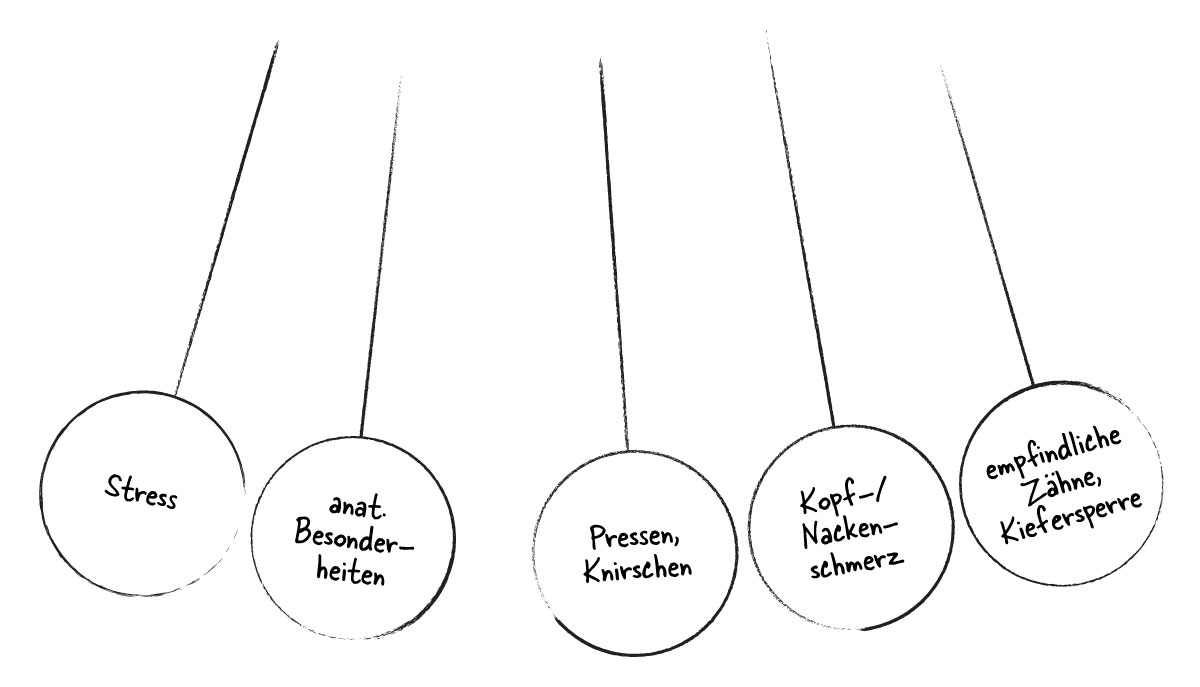Temporomandibular joint disorder
Hypersensitive and exposed tooth necks can be equally indicative of CMD, as can abraded enamel areas on the occlusal surface.
You have noticed that the complaints are intensified at times? You can recognize a relation to stressful phases of life? This makes sense from a professional point of view, because stress is a major influencing factor. Stress leads to tension, bad posture and usually to nighttime clenching and/or grinding. In the morning you don’t feel fresh, but rather tired and “hungover”. If you also notice a lot of tooth contact during the day and have to relax your face again and again, then you can assume that you also do this at night.
Since you are not able to actively exert influence during sleep, unlike during the day, we can produce an individual splint for you. It ensures a relaxed position of the jaws in relation to each other.
On the other hand, it protects your teeth from unfavorable tooth to tooth contacts and further abrasion.
